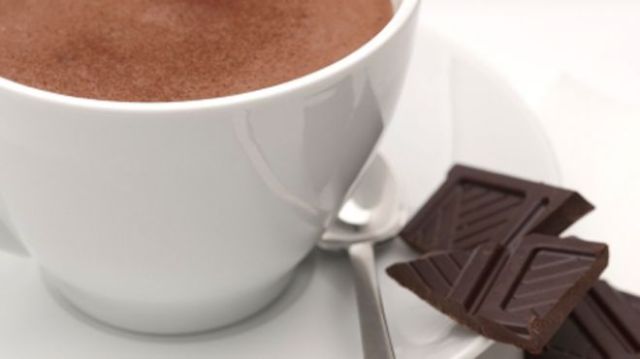
New study reveals that drinking hot chocolate could help the brain in functioning better. SOURCE: foxnews.com
foxnews.com
Want to ward off dementia later in life? Chocolate may be the answer.
Consuming just two cups of hot chocolate a day may help elderly adults who are experiencing impaired blood flow to have healthier brains and improved thinking skills, new research claims.
The research, published by the American Academy of Neurology, looked at the effect of cocoa consumption on cognition and neuro-vascular coupling, the link between nerve cell activity and blood flow to the brain.
“We are learning more about blood flow in the brain and its effect on thinking skills,” said study author Dr. Farzaneh A. Sorond, of Harvard Medical School.
“As different areas of the brain need more energy to complete their tasks, they also need greater blood flow,” She informed
“This relationship, called neuro-vascular coupling, may play an important role in diseases such as Alzheimer’s,” she said.
When blood flow and neuron activity are not in sync with one another, neurons cannot function properly, leading to a decline in cognition and motor function.
This is seen in patients with Alzheimer’s, vascular dementia, and early cognitive dysfunction.
To better understand the relationship between neuro-vascular coupling and cognition, the researchers observed 60 people with an average age of 73 over the course of 30 days.
None of the study participants had been diagnosed with dementia, though 18 participants showed evidence of impaired blood flow to their brains at the start of the study.
“There are many observational studies and a few small randomized trials looking at the benefits of cocoa on cognition,” Sorond said.
“Since, it was a lot easier to recruit participants for a cocoa study than a drug study, it was the obvious choice,” she added.
“Of course chocolate comes with a lot of sugar, fat and extra calories so we reviewed the nutritional intake of the participants and made to sure to substitute the cocoa with something equivalent,” Sorond said.
All of the study participants consumed two cups of hot cocoa daily for a total of 30 days and were told not to ingest any other chocolate throughout the study period.
Over the course of the study, participants used computer programs to test their memory and thinking skills, while being hooked up to ultrasound machines to measure the amount of blood flow to the brain.
At the conclusion of the study, participants with impaired blood flow saw an 8.3 percent improvement in circulation. Participants who started the study with normal blood flow to their brains saw no changes.
The people with impaired blood flow also showed improvement in the time it took to take their tests. At the beginning of the study, these participants took an average of 167 seconds to complete the tests – this dropped to 116 seconds by the end of the study.
No change was recorded in times for people with regular blood flow.
“The scientific significance of our study is not so much that cocoa improves neuro-vascular coupling, but that we have a biomarker (neuro-vascular coupling) which may be useful in identifying individuals at risk of cognitive impairment in the pre-clinical state when interventions such as cocoa and other potential agents may prevent disease progression,” Sorond said.
The researchers hope to expand upon their initial study in the future.
“More work is needed to prove a link between cocoa, blood flow problems and cognitive decline,” Dr. Paul B. Rosenberg, of Johns Hopkins School of Medicine in Baltimore said in an editorial he wrote to accompany the study.
“But this is an important first step that could guide future studies,” he added.
